A Guide to Acquisition-Installation-Maintenance
Have you ever said to a used car salesman “What do you think I should buy? I have plenty of money. Pick something out for me.”
Of course not!
Why do you do that when you buy a generator?
Start your education here.
Purchasing
I wrote the following article as a condensation of my experiences working with contractors, manufacturers’ sales staff, and consulting engineers. This is a seriously abridged version of over 40 years of my experiences. As always, my opinion.
Some of my experiences look like this:
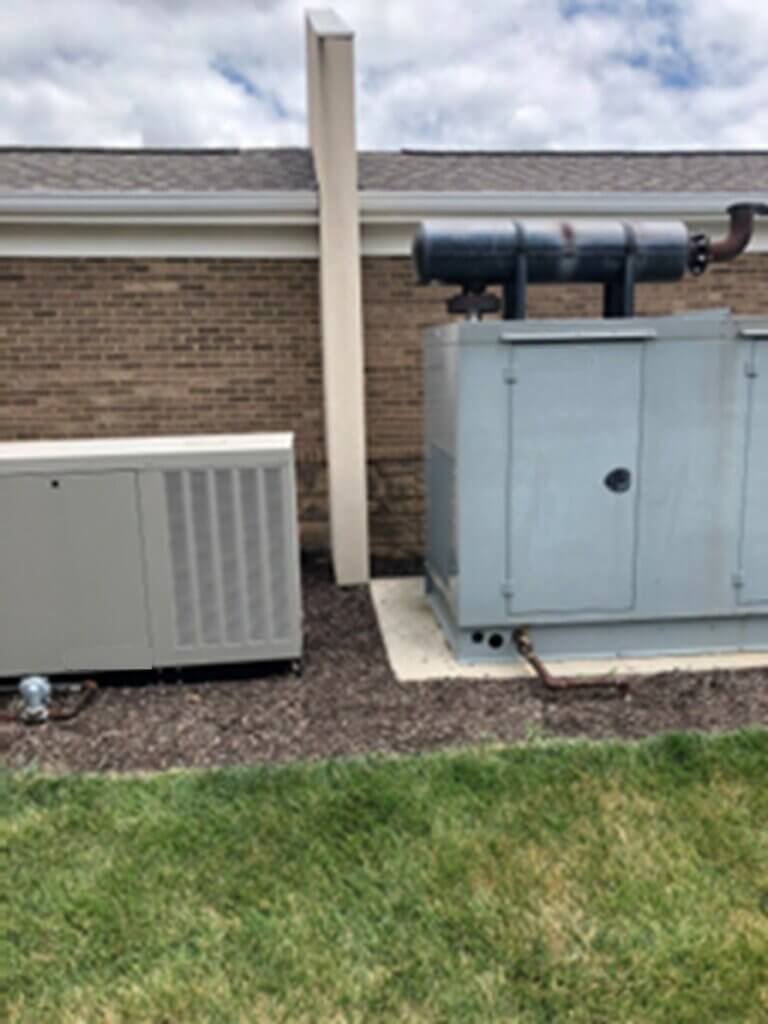
The big generator exhausts its hot cooling air directly into the intake of the smaller generator causing the little generator to overheat and shut down.
No engineer was employed.
I have a lot of these examples. The owners get to pay for the corrections.
Responsibilities of the Consulting Engineer
Buying a Generator?
Hire an engineer!
An emergency power system is highly sophisticated equipment. You should not buy one off of the lot no matter how good the deal seems to be. It is not.
You do not know what you are doing. Low price is a trap. The salesman always has junk to get rid of and you cannot tell the difference.
An independent telephone company bought fourteen new generators from a distributor and wanted me to do the “start-up” for them. One of the vendor’s customers had canceled an order and left them with unsold stock. These things were a mess. Parts had been scavenged off of some of them and they had been sitting in the weather for over five years.
Another telephone company bought twenty-five “overstock” units from a large “reputable” dealer and had them installed. It took us years to work the bugs out of them. They were stored in an underground facility. Mice had nested in them. In an underground, the air holds lime. Tiny Stalactites had formed on all of the exposed metal and interfered with ignition and fuel delivery.
Always hire an engineer—always!
The manufacturer should build your equipment to your specifications exactly. One size does not fit all (or anything!) Your engineer should supervise this from inception though installation acceptance. That is why you hire him.
Since your engineer will specify compliance with NFPA 110, Standard for Emergency and Standby Power Systems, he should buy a copy and read it.
All too often, engineers rely on the assurance from a technically illiterate salesman that the product meets code. Unfortunately, the salesman relies on the assurance from his equally illiterate factory rep who relies on his factory sales manager who relies on his engineering department head whose incentive plan relies on moving product. You pay your engineer to represent you no matter how impressed he is with a big product name. When your engineer fails, you pay for his negligence.
Building Codes
The contract will stipulate that all work must comply with all local building codes. Your engineer cannot give the installer a free hand. Building codes are statutory. In addition, the contract will list specific codes such as International Building Code (IBC), and NFPA standards like, 101 Life Safety Code, and 70, National Electric Code.
It will go on to list every standard the engineer can think of in order to legally cover himself. The codes will be included in such a way as to require the contractor to comply thus deflecting the responsibility of compliance from the engineer and placing it on the contractor.
You do not hire an engineering firm for their attorney’s ability to deflect liability, but for their expertise in overseeing a legal and efficient installation. Have your lawyer check out the contract.
Also be aware, the engineer has errors and omissions insurance. This is good. You may need it.
Building and Fire codes protect you!
Do not expect the building inspector to cite any building code shortcomings with regard to the generator. In all likelihood he has not read NFPA 110 either even though it is incorporated in municipal law.
Oversight and Inspection
You hire an engineer because your bank requires it, and you know you do not have the expertise to manage the acquisition yourself.
With regard to oversight, the engineer is required to review the submittals before authorizing a purchase as well as conduct a “walk-through” after the installation is completed to make sure of compliance with his specification.
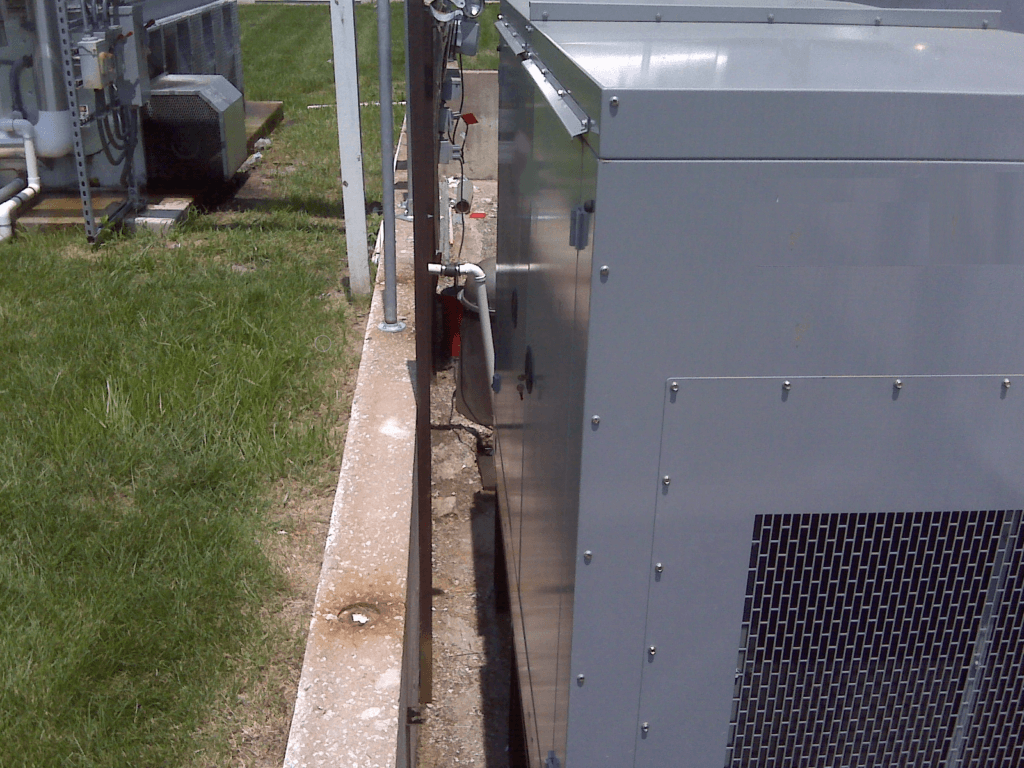
No engineer was employed.
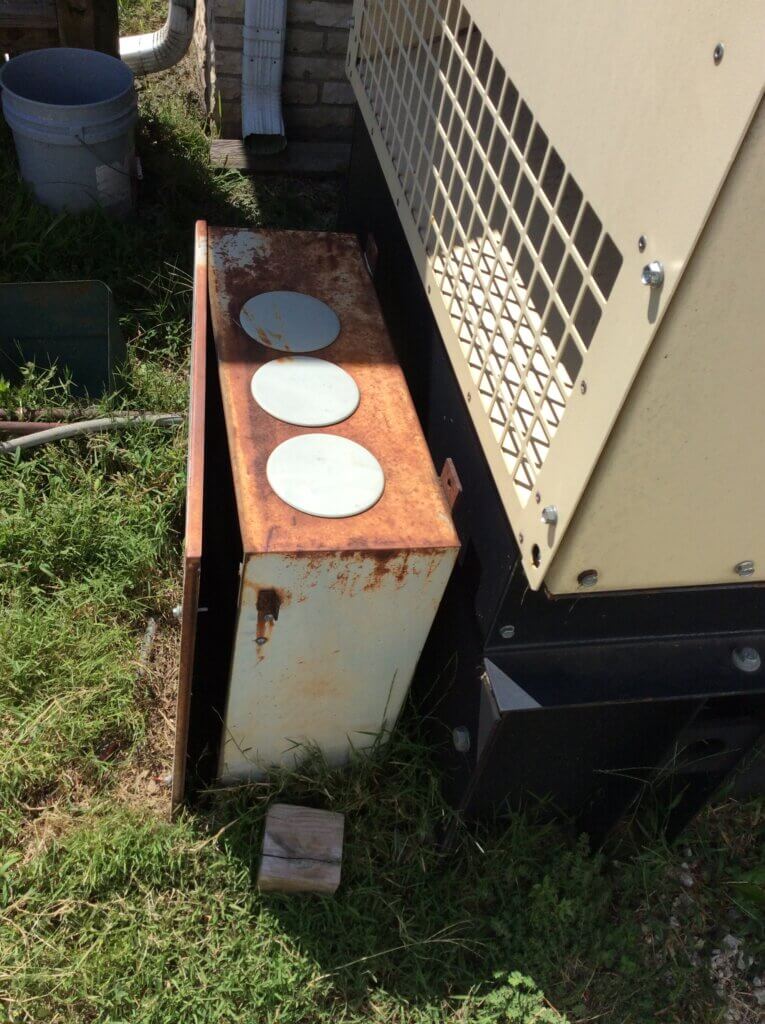
It should be NEMA 4
Water runs into it from the ground then enters the 4 inch conduits.
It empties out in the records room and transfer switch.
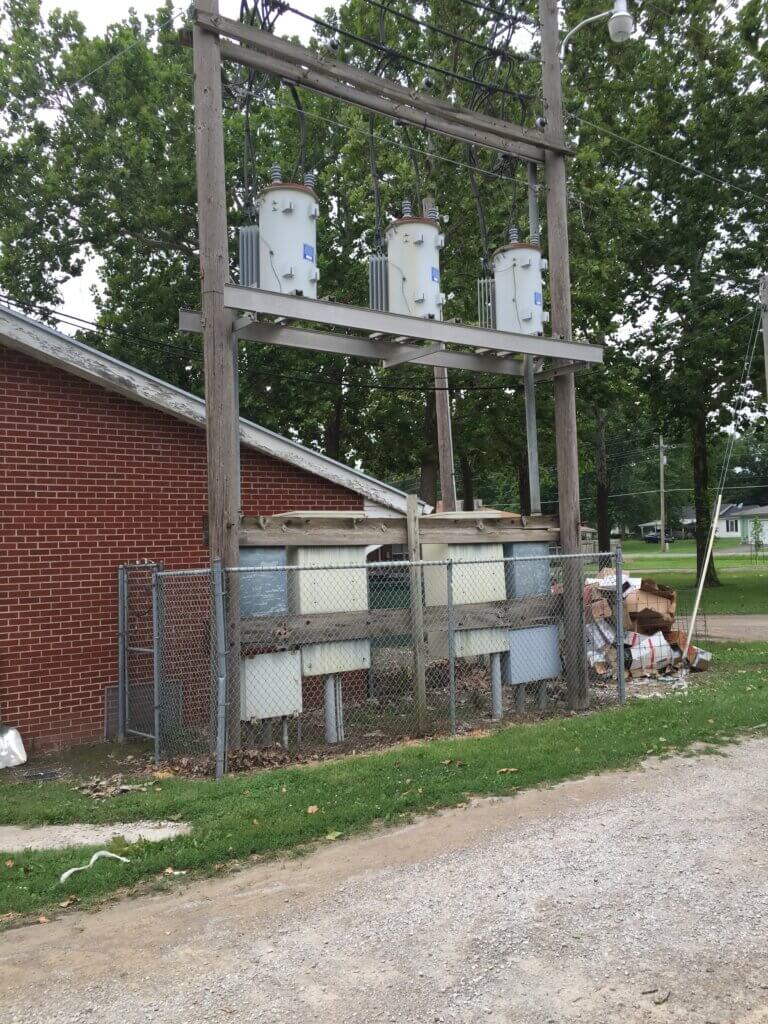
In the event of a catastrophic transformer failure, the transfer switches cannot be used.
All power to the building will be lost.
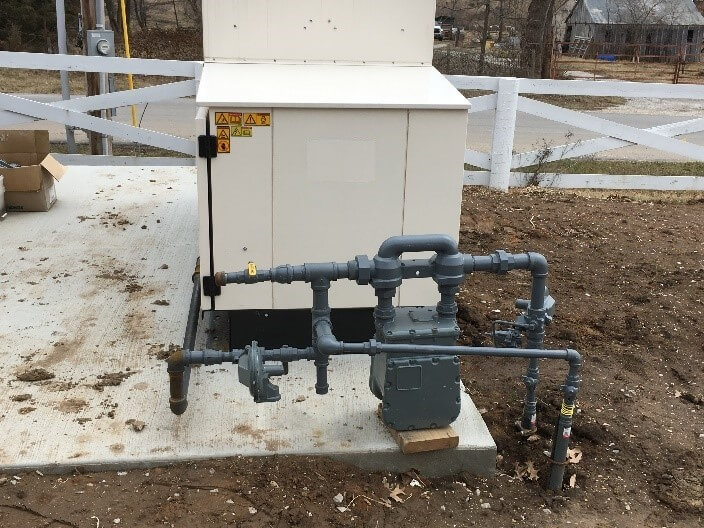
The valving is not labeled, and the generator supply is not connected ahead of the main.
Natural Gas Fuel Systems
Installation
Although the contractor is responsible for the installation, your engineer is not relieved of the responsibility of oversight. He needs to make sure the materials he approved were accurately acquired, the manufacturer’s installation instructions were followed, and all local building codes were followed.
Materials
A contractor needs to make money on all installations. He will often use inappropriate materials if he thinks can get away with it. They all do it.
For example I have often found solid core wire used where stranded is specified by code. It is expensive to send a tech to the supply house if an alternate acceptable to the contractor is available. If he thinks the inspector and engineer won’t catch it, he will substitute. When it fails, you pay.
I have even found sewer pipe painted grey in place of electrical conduit. Of course, if the electrical conductors get hot, the sewer pipe will melt. Ten years down the road, you pay for the repair.
Beware of automatic transfer switches mounted outside where NEME 4 weathertight enclosures are required. These are more expensive than standard NEMA 1 or NEME 12 which let rain in. Unless the engineer catches it, you will be looking at transfer switch failure.
Transfer Switch Weather Protection
Generator Vendors
Generator manufactures and their distributor networks are quite familiar with techniques to manipulate engineers, contractors, and owners to increase their profit. They have had decades to perfect their marketing programs.
For example, they will build the control panels and remote annunciators to comply with NFPA 99 and NFPA 110 and proudly advertise this. Unfortunately, those may be the only two elements that actually meet code, but since they are prominently displayed, engineers and contractors assume the rest of the equipment also meets code. I have never seen a code compliant power system! The list of shortcomings is way too long to post here.
One example is the battery charger. Some manufacturers use a cheap battery charger. It helps the vendor get low bid and if caught, the sales company will apologize and supply a correct part. It will only cost them a small percentage of their bid, but they never get caught! So, they keep doing it. Your engineer should catch this. They never do.
I’m going to leave it here for today. There is a lot more to come.
Paul Harris
Our Legal Disclaimer:
All information expressed by Standby Power Solutions, LLC or its officers is strictly the opinion of Standby Power Solutions, LLC.
Standby Power Solutions, LLC disclaims any liability for any personal injury, property, or other damages of any nature whatsoever, whether special, indirect, consequential, or compensatory directly or indirectly resulting from the publication, use of, or reliance on this website or any information derived thereof. Standby Power Solutions, LLC also makes no guaranty or warranty as to the accuracy or completeness of any information contained herein. Anyone using this website should rely on his or her own independent judgment, or as appropriate, seek the advice of a competent professional in determining the exercise of reasonable care in any given circumstances. ©2021 by Standby Power Solutions, LLC. All rights reserved. Do not reproduce without express written permission.